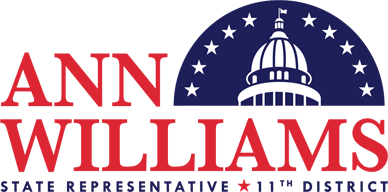On Friday, June 22nd, the U.S. Supreme Court handed down a landmark decision in Carpenter v. United States – concluding what the Illinois General Assembly has said for years: regardless of how technology advances, every individual has a fundamental right to privacy.
Last year, Illinois State Representative Ann Williams (D-Chicago) and Illinois State Senator Tom Cullerton (D-Villa Park) introduced and passed the “Geolocation Privacy Protection Act” (HB3449), which required companies to obtain consent from Illinois citizens before tracking their locations via mobile devices. Despite strong public support and advocacy organizations such as the ACLU and the Digital Privacy Alliance, the Governor vetoed the bill – siding with Big Data over Illinois consumers’ right to privacy.
The Supreme Court addressed these rights head on in the Carpenter case. At issue was whether the Fourth Amendment, which forbids unreasonable search and seizure, protects a person’s cell phone location data records; specifically, does a person have a reasonable expectation of privacy to not be tracked? The Court’s answer is an unequivocal yes.
In Friday’s historic decision, Chief Justice Roberts stated “[a] cell phone faithfully follows its owner beyond public thoroughfares and into private residences, doctor’s offices, political headquarters, and other potentially revealing locales.” As a conservative, Justice Roberts’ authorship of the Court’s opinion is significant. The protection of an individual’s digital privacy is clearly not a partisan or political issue – but a basic right of every American, even as technology makes it easier and easier to access, monitor and track private data.
“Through his veto, Rauner told Illinois residents they have no right to consent if and how companies are able track their – and their children’s – location,” said Williams, who sponsored the bill in the House. ”The Supreme Court has made it clear this is not the case.”
“After the Geolocation Privacy Protection Act passed both houses of the General Assembly, Illinois was poised to become the national leader in consumer privacy protection,” said Cullerton, Senate sponsor of the legislation. “That is, until Governor Rauner vetoed the bill, significantly setting back our efforts to protect consumer privacy.”
In addition to being on the wrong side of history, Rauner is out of step with public opinion on this issue. A poll conducted last year by Illinois Public Opinion Strategies shows that the Supreme Court’s decision reaffirms what 94% of Illinois citizens already know: corporations should not be collecting, sharing, or selling personal data without consent.
In his veto, Rauner claimed the bill would hurt business and stifle innovation, without providing any evidence to support those claims and ignoring the interests of Illinois consumers.
Last week’s Supreme Court ruling is a wakeup call to Rauner and the companies which take advantage of consumers unaware of how their personal data is being used for profit. Technology does not erode the right to privacy.
Williams and Cullerton plan to reintroduce this legislation during the upcoming legislative session.

